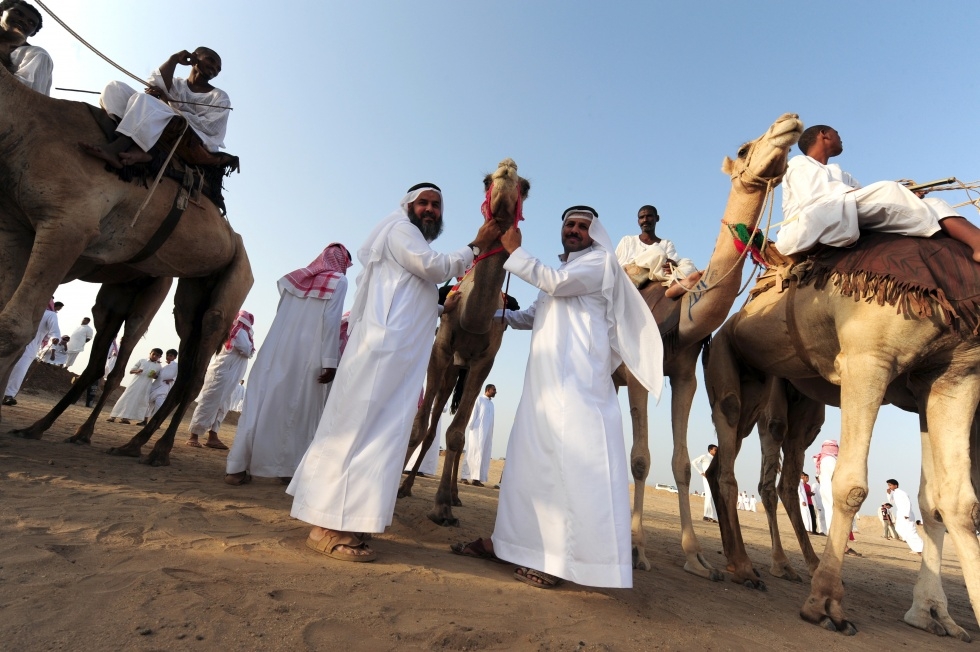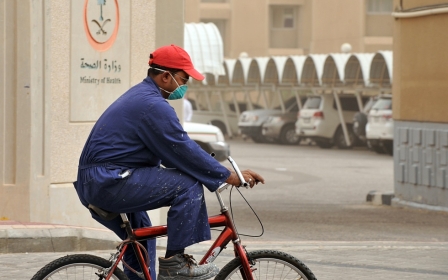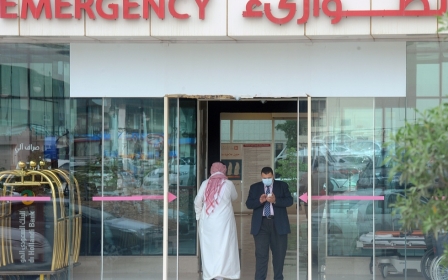Saudi farmers get the hump over MERS camel warnings

Saudi farmers stood defiant over the weekend as they took to social media to challenge the government line that camels could be behind the deadly MERS virus.
Saudi Arabia’s Agriculture Ministry has now called on people handling camels to wear masks and gloves to prevent spreading Middle East Respiratory Syndrome (MERS), breaking its relative silence on the sensitive issue.
The ministry first admitted there may be a link between camels last month, but this is the first time they have issued official notification to those working with the animal.
Some farmers, however, have resisted the warnings posting photos and videos of them hugging their herds online.
A farmer last week posted a clip of himself hugging and kissing camels while criticising the warnings to be cautious with the animals.
New MEE newsletter: Jerusalem Dispatch
Sign up to get the latest insights and analysis on Israel-Palestine, alongside Turkey Unpacked and other MEE newsletters
“Do sneeze in my face,” he said in the video as he hugged one camel, putting his face against its head. “They claim camels carry the coronavirus,” he then adds, sarcastically.
Another Saudi national posted a picture showing him kissing a she-camel on the mouth to prove that the animals, could not be the source of infection.
Tentative links between camels and the virus first appeared last year, but these have gathered pace with the World Health Organization now advising people with weakened immunity to avoid contact with camels and to take extra precautions when consuming camel products, such as milk.
In a statement on Sunday, the Agriculture Ministry advised people not to come into contact with camels unless necessary and to wash hands before and after if they did, as well as wearing face masks, state news agency SPA said on Sunday.
“It is advisable to wear protective gloves, especially when dealing with births or sick or dead [camels],” it said, according to SPA. It also advised only eating cooked camel meat and to boil camel milk before consuming it.
The statement urged people to report symptoms of MERS in camels immediately.
Saudi Arabia has been the epicentre of the deadly respiratory disease, which as of Sunday was known to have infected 496 people worldwide, 483 of whom were from the kingdom. About a quarter of those infected have died, with Saudi Arabia confirming three new deaths on Sunday, bringing the worldwide death count to 142.
Public disquiet there has grown amid rumours on social media sites that the government has not been fully transparent about the disease, although the authorities deny this.
There are also growing concerns that the disease will not be fully contained before July, when the Muslim world will celebrate the holy month of Ramadan.
The Saudi health minister, Abdullah al-Rabiah, has already been sacked over the disease, as have a number of other high-ranking medical officials in the kingdom.
The World Health Organisation (WHO) is scheduled to hold an emergency meeting over MERS on Tuesday to discuss prevention and the global response to the disease.
While at present there is no vaccine for MERS and the efficacy of anti-viral medications is still being tested, US researchers claim they have made tentative progress toward an experimental vaccine.
Maryland University and Gaithersburg biotech Novavax announced that they vaccine for combating coronavirus has succeeded in stopping infection in laboratory studies, the Saudi Gazette reported on Sunday.
Middle East Eye delivers independent and unrivalled coverage and analysis of the Middle East, North Africa and beyond. To learn more about republishing this content and the associated fees, please fill out this form. More about MEE can be found here.




